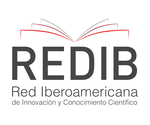Características de la personalidad relacionadas con el proceso de mentoría
Resumen
Se realiza una revisión narrativa sobre la relación entre el proceso de mentoría (o mentorazgo) y la personalidad de mentores y mentoreados. Se encontró que las condiciones que favorecen un desarrollo satisfactorio del proceso son bajo nivel de neuroticismo, conciencia elevada, alta extraversión, agradabilidad intermedia, apertura intermedia, locus de control interno, bajo narcisismo y concordancia entre los niveles de neuroticismo del mentor y del mentoreado. En el caso de la autovigilancia los resultados son contradictorios. En vista de la escasez de estudios sobre la relación entre personalidad y mentoría, se recomienda investigaciones específicas en torno a este tema, particularmente en el ámbito de la educación médica.
Referencias
National Academies of Sciences, Engineering, and Medicine: The Science of Effective Mentorship in STEMM. Washington, DC, National Academies Press (US), 2019.
McCrossan R, Swan L, Redfern N. Mentoring for doctors in the UK: what it can do for you, your colleagues, and your patients. BJA Educ. 2020;20:404–410.
Ogdie A, Sparks JA, Angeles-Han ST, Bush K, Castelino FV, Golding A, et al. Barriers and Facilitators of Mentoring for Trainees and Early Career Investigators in Rheumatology Research: Current State, Identification of Needs, and Road Map to an Inter-Institutional Adult Rheumatology Mentoring Program. Arthritis Care Res (Hoboken). 2018;70(3):445-453.
Matthews G, Deary IJ, Whiteman MC. Personality Traits. Cambridge University Press, 2003.
Dotan I, Burisch J. Young GI Angle: What makes for a good mentor? United European Gastroenterol J. 2016; 4:320.
Lee FK, Dougherty TW, Turban DB. The role of personality and world values in mentoring programs. Review of Business. 2000; 21:13–41.
Tor PC, Goh LG, Ang YG, Lim L, Winslow RM, Ng BY, et al. Qualities of a psychiatric mentor: a quantitative Singaporean survey. Acad Psychiatry. 2011;35(6):407-10.
Abu Bakar R, Loi HK. The relationship between mentoring program and mentees psychological and emotional support: Personality as a moderator. Journal of Cognitive Sciences and Human Development. 2016; 1:84–98.
Bozionelos N, Bozionelos G, Polychroniou P, Kostopoulos K. Mentoring receipt and personality: Evidence for non-linear relationships. J Bus Res. 2014; 67(2):171–181.
Duckworth AL, Weir D, Tsukayama E, Kwok D. Who does well in life? Conscientious adults excel in both objective and subjective success. Front Psychol. 2012;3:356.
Li Z. The analysis of the influences of student’s narcissistic personality traits to negative mentoring experiences. Creat Educ. 2015; 06:350–358.
Kim S-K, Kim M-J. Mentoring network and self-monitoring personality. Manag-Rev. 2007; 18:42–54.
Turban DB, Dougherty TW. Role of Protégé Personality in Receipt of Mentoring and Career Success. AMJ. 1994; 37:688–702.
Wulf K, Borges N, Huggett K, Blanco M, Binkley P, Moore-Clingenpeel M, et al. Personality Compatibility Within Faculty Mentoring Dyads and Perceived Mentoring Outcomes: Survey Results of Academic Medicine Institutions in the USA. Med Sci Educ. 2021;31(2):345-348.
Derechos de autor 2023 Johann M. Vega-Dienstmaier

Esta obra está bajo licencia internacional Creative Commons Reconocimiento 4.0.
La RNP se distribuye bajo una Licencia Creative Commons Atribución 4.0 Internacional.
Los autores ceden sus derechos a la RNP para que esta divulgue el artículo a través de los medios que disponga. La revista proporcionará formatos de declaración jurada de autoría y autorización para la publicación del artículo, los cuales deben ser entregados junto al manuscrito.
Los autores mantienen el derecho a compartir, copiar, distribuir, ejecutar y comunicar públicamente su artículo, o parte de él, mencionando la publicación original en la revista. Los autores pueden archivar en el repositorio de su institución:
- La tesis de grado de la cual derive el artículo publicado.
- La versión pre-print: versión previa a la revisión por pares.
- La versión post-print: versión final posterior a la revisión por pares.
- La versión definitiva o versión final creada por el editor para su publicación.












